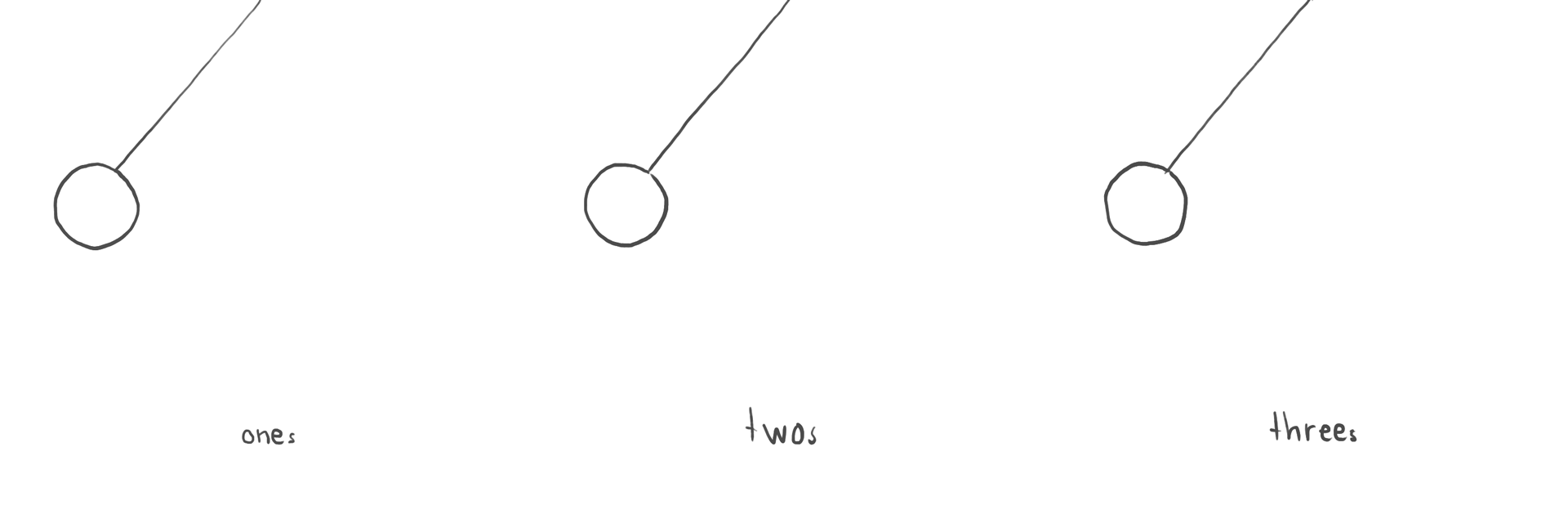“Focus on being productive instead of busy.”
Tim Ferris
Whether you should be animating on 1s, 2s, or 3s is a common question that many animators may find themselves facing.
We agree that there’s value in every option. However, animating on 2s has grown in popularity for crucial reasons. Some of the most efficient animation producers, animation studios, opt for animating on 2s because of the benefits it brings. the big question is: why?
In this blog post, we discuss the biggest benefits of animating on 2s and why animation studios and freelance animators love this animation technique.
What Is Animating on 2s?
To produce a decent animation, you’ll need to develop a series of animation frames that work well together.
The standard way of animating is to work on a per-frame basis. A series of frames are produced and played over a one-second duration to produce an event or scene. Each event usually consists of 24 frames that create movement and detail that's seen by the viewer over the one-second snippet of the animation.
You have the option of animating on 1s, 2s, or 3s, depending on your animation requirements.
Let's take a closer look at the various types of animation you could make use of:
- Animating on 1s—creating 24 frames for every 1 second of animation.
- Animating on 2s—producing only 12 frames per 1 second of animation and holding each frame for twice as long.
- Animating on 3s—creating 8 frames and holding each frame for three times as long.
To ensure that everything comes together well, animators need to create animation frames that have consistent detail, and that can be merged to produce satisfactory motion.
Deciding between animating on 1s, 2s, or 3s means that you can optimize your animation workflow. Animating on 2s can be applied to various animation scenarios easily and effectively. For more details, our blog on what an animation base is delves into creating animation frames quickly and efficiently.
Here’s a look at the top benefits of animating on 2s and why animation studios are making use of this animation technique.
What Are the Benefits of Animating on 2s?

GIF via BMCC Openlabs
Animating on 2s is the most popular form of animation used today, and for a good reason.
Creating as many animations as possible to the best of your ability is a key goal for any animator wanting to be successful in the industry.
Animation studios are known for churning out reels of animations within strict deadlines.
Top studios like The DVI Group, Rocketwheel, and Pigeon Studio make use of animating on 2s. This is because animating on 2s allows for the fast production of high-quality animations that optimize animation workflow without compromising on animation quality.
Check out the short movie “Hitchhikers” by Pigeon Studios to see how animating on 2s is incorporated into award-winning animation.
Here are our top 4 benefits of animating on 2s that animation studios are benefitting from.
1. Animating on 2s Can Cut Your Work Time in Half
Gif by Justin Gammon via Giphy
Animating on 2s requires only half the number of drawings when compared to animating on 1s. So it’s easy to see why animating on 2s requires less time working on animation frames.
When developing animation frames, most animators start with keyframes. These establish the first and last positions of a sequence of movements.
Keyframes are linked by inbetweens, which are animation frames that create the fluid motion seen between keyframes.
When done using well-developed inbetweens, animating on 2s produces top-quality reels that capture all the right detail and motion.
To get a taste of how you can improve on your inbetweens and animation frame development, read our blog, Top 4 Animated Movies to Inspire Freelance Animators, for an installation of inspiration.
2. Save Resources by Animating on 2s
Since animating on 2s requires less work, it can also save on resources.
For example, if you were drawing animation scenes on paper, animating on 2s would mean using less of the paper and stationery required when animating on 1s.
Gif by Ultra Records via Giphy
Animating on 2s also adds to the efficient use of human resources, which is a big plus for animation studios and thinly stretched freelance animators alike.
By setting guidelines to animate some or most animation scenes on 2s, studio employees can complete twice as many frames per day, and animation workflow can improve drastically.
Take a look at our blog, 9 Best Business Skills that Animators Should Learn, for more information on the key resource management skills you should have as a freelance animator.
3. Animating on 2s Improves Animation Quality
Part of the reason why animating on 2s is so popular is because it's an efficient way to create animations without compromising on animation quality.
Gif by Superstore via Giphy
Animating on 2s generates animated motion that's appropriate for slow-to-moderate movement as well as weighty scenes.
For example, when a character is walking, speaking, or gesturing, animating on 2s can create a top-quality effect.
For this reason, scenes expressing sadness, pressure, anger, or stress can be better captured by animating on 2s. This is because animating on 1s makes motions seem lighter and smoother and may lose the air of heaviness that’s required.
This functionality of animating on 2s makes it easily applicable to a wide variety of animated scenes which only adds to its usefulness.
4. You Can Grow Your Business’s Success by Animating on 2s
Gif by Sleeping Giant Media via Giphy
Because of the benefits of animating on 2s, this type of animation boosts production rates in a big way.
These animation workflow benefits can translate into significant financial gains that would have any studio head or freelance animator smiling from ear to ear.
Studios stand to benefit the most from the benefits of this type of animation because of their greater capacity for production. Freelance animators can learn a lot about improving animation workflow efficiency from animation studios.
In this way, freelance animators can also incorporate animating on 2s into their business operations to optimize their functionality. Watch this video: CGI Dreamworks Animation Studio Pipeline | CGMeetup, for a closer look at how studios approach animation workflow.
How to Decide Between Animating on 1s, 2s, or 3s
While animating on 2s is great in many different circumstances, there are some instances where animating on 2s isn’t the best option.
Some examples of this are:
- Fast-paced scenes.
- Scenes where the character and background are moving simultaneously.
- Animations that require very smooth and detailed motions.
In these instances, it may be better to animate on 1s or 3s. So, knowing what the best applications are for animating on 1s, 2s or 3s is important.
Watch Locust Street Art’s video for more information on the best ways to use different types of animation: 1s or 2s l Animation with Roger Scott.
Use Animating on 2s to Grow Your Workflow Efficiency
There are many different tools of the trade that you can make use of to improve the way you work as an animator.
Animating on 2s is one of those tools that are so effective that even the top animation producers swear by them. Animating on 2s can be the gateway to improving the efficiency and success of your animation business so take advantage!
You can also build on your animation business in meaningful ways when you take our FREE TRAINING on How to Make Over $10,000 per Month as a Freelance Animator or Studio Owner and read our blog on “How to Start an Animation Studio”!



